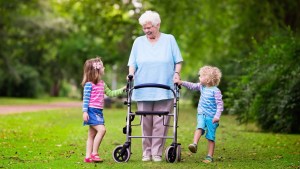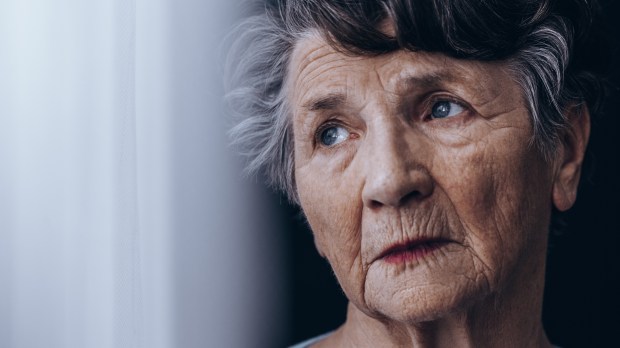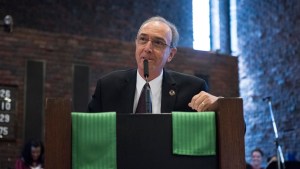Lenten Campaign 2025
This content is free of charge, as are all our articles.
Support us with a donation that is tax-deductible and enable us to continue to reach millions of readers.
My mother died with dementia. She didn’t know her husband, her grandchildren, her name, and she didn’t know me, her only child.
Shortly after Christmas 2010 her hip broke, dropped her on the floor and sent her to the hospital. Though the hip replacement operation was a success, she emerged from anesthesia with far greater confusion than before. This happens frequently to the elderly.
She died roughly 90 days post-surgery, which is not at all uncommon for dementia patients undergoing any sort of invasive surgery. Most surgical patients with even mild dementia, especially women, simply die off at about 90-day intervals. That’s a firm statistic. One study put the one-year post-operative mortality at almost 80%. One non-surgical approach – not proposed by surgeons – is to render palliative care only, since the risk is so high and imposes a long confusing period of time on the patient before death.
With dementia they descend ever deeper into a mental thicket hardly recognizable to them, one so deep they can no longer feel even hunger. They cannot remember yesterday, they make no plans for tomorrow. They live only in a hazy and frequently agitating never world. That’s how my mother died.
I had a parishioner back in my Lutheran pastorate days, nice guy, who just dried up. He became less and less of himself until he wasn’t himself at all. He shriveled; his world shriveled with him. He had a plain garden-variety dementia and that was all. Not Alzheimer’s, not the sexy one everybody knows about and even jokes about (blame “half-heimers” if you come home from the store with the wrong items).
What happened to them, my mother, my parishioner? Who were they when they no longer could remember who they were? Where were they? Who had they become?
These issues are taking on more interest for me.
Until lately old age and me, we were actually getting along on fairly good terms. I thought we were growing comfortably cozier, settling in, you know. Until, oh, 14 months ago.
My wife noticed a few odd things about me (well, odder than normal) beginning a while back, and then one really big thing. Was it late fall, 2020, the school year just underway? That seems right. I had a serious memory hiccup involving live worms that turned out to be dead worms by the time she found them.
She ordered them for a science lesson with her fifth graders. I was to retrieve and refrigerate them. I do not remember them being delivered. It was clear they had, though I had no recollection of it, yet there they were, some days on without refrigeration, in their full and by now odorously decaying glory.
In fact I had no recollection of the day at all. A small stroke did that apparently on the day they were delivered. I tried to reconstruct the day, but not well. I remember the next day quite well. I bought replacements from a bait shop and delivered them to the school.
I don’t remember what else my wife had been noticing but she was concerned, and with some reluctance I became concerned too.
She sent me to my doctor, who sent me for an MRI. It showed lots of “white matter” involving both hemispheres of the brain. I was aware of it from an MRI 10 years previous. No one said much of the white matter, not at the time. But then it wasn’t as extensive 10 years ago.
It was once thought that, like tonsils, white brain matter was benign. It isn’t. I was unaware how serious it might be. Not that there is much to be done about it; it indicates a variety of brain damage caused by numerous abrading factors (old age being only one) that prevent blood from reaching the entirety of the brain. Some folks go on through life, white matter and all, with hardly a bother. Others do not; I am one of the bothered. Diabetes is my deal; it restricts blood flow through the small vessels (gum disease is often one result of diabetes; and, thank you, my gums are just fine).
My doctor sent me on to a psychologist who put me through a battery of tests that confirmed a decline in cognitive functionality. I am said to have a “reduced physiological and brain reserve. …” The phrase “brain atrophy” also pops up in the health literature I’ve read. I hate it when that happens.
Though it is known by other names (leukoaraiosis or “white matter disease”) it is generally called “small vessel brain disease” and for short reference, it goes by SVD, which to me sounds faintly like an STD.
Along with cognitive troubles, SVD has produced so far small, thoroughly aggravating difficulties in walking (sometimes lurching in my experience), maintaining balance (wobbling while standing or standing while wobbling, whatever fits), and walking pace, which means slow walking. SVD also diminishes my capacity for “doing more than one thing at a time.” “Talking while walking” is a cited example. You wait; next it’ll be chewing gum.
It also goes by “vascular dementia.” Those characteristics are ongoing and will likely worsen. Vascular dementia turns out to be much like every other sort of dementia.
I find myself sometimes doing an old man shuffle to get my feet going, negotiating travel by launching a series of small, small rapid steps until reaching speed, which is still, you know, slow. I find that more publically embarrassing than forgetting to raise my zipper to its full and upright position. I’m old; who’s looking anyhow? But shuffling, that probably means I’m delaying a line of impatient people who would happily trample me if permitted by law. Slow old people can be just so, so irritating.
Worse — I find it worse — this is the first piece I have finished writing since April 2020. I believe I started it four, perhaps five weeks ago. I go up to my study with my mind brimming with ideas and notions. I sit down before the screen with fingers poised above the key board and I have walked into a room where I cannot remember what I was coming after.

I wonder what I shall know when I am unable to know myself. How are we ever again ourselves or, calling up a boomer rock song, are we all just “slip siding away”?
Dawn Eden had an arresting notion in one of her books, one I reviewed here at Aleteia. She was speaking specifically of the trauma of some memories, the way they intrude unbidden. She said, give them to God and thereafter remember they can no longer bother you. Giving God your memories, that’s a better place for them anyway.
When our daughters were young my wife would every morning make the Sign of the Cross on their foreheads and say, “Remember you are baptized.” I think in these loitering days it was as much a demand of God, that He remember their baptisms. If scripture is true and he is a God of the living and not of the dead, perhaps it will be so, that if we forget, he remembers.
Before entering seminary and becoming a Lutheran pastor (before becoming Roman Catholic), Russell E. Saltzman was a newspaper reporter, press secretary to a member of Congress, and deputy secretary of the state of Kansas.
See his earlier work at Aleteia here, including these “best of the archives”:


